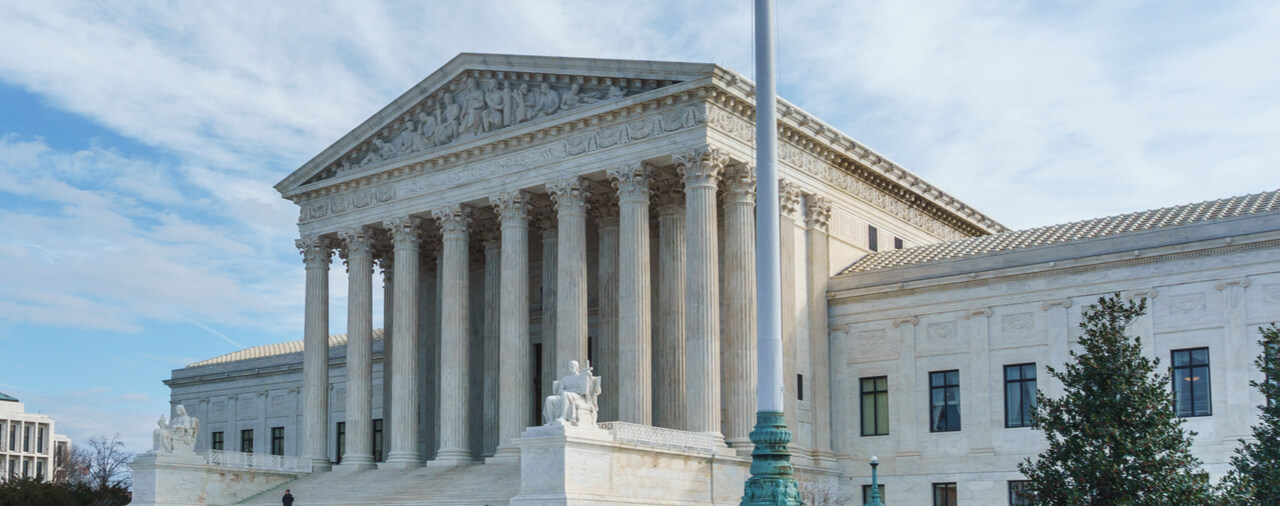On June 26, 2017, the Supreme Court of the United States denied a petition for certiorari in an interesting case titled Mathis v. Shulkin, No. 16-667 (U.S. Jun. 26, 2017) [PDF version]. The question before the Court was whether medical evaluators at the United States Department of Veterans Affairs (VA) are entitled to a presumption of competency to provide expert opinions on any medical issues. This presumption of competency places the burden on disabled veteran claimants to rebut the presumption of competency of specific medical evaluators in raising a claim against the VA. The United States Court of Appeals for the Federal Circuit held in an unpublished decision that the medical evaluators are entitled to a presumption of competency [PDF version]. That decision now stands with the Supreme Court having declined to hear the case.
However, the denial of the petition for certiorari drew a lone dissent from Justice Neil Gorsuch. Although the issue does not touch on the immigration laws, it provides an early look into how Justice Gorsuch may view complicated issues involving administrative regulations and procedures. We have discussed previously that Justice Gorsuch’s record on the United States Court of Appeals for the Tenth Circuit suggests that he may be hostile to a separate administrative issue regarding the principle of Chevron deference, a distinct issue in administrative law [see blog].
Justice Gorsuch began his dissent by noting that “[l]ower courts often presume that Department of Veterans Affairs medical examiners are competent to render expert opinions against veterans seeking compensation for disabilities that they have suffered during military service.” He added that the VA itself applies the presumption that its medical examiners are competent during its own administrative proceedings.
Justice Gorsuch questioned where the presumption of competency comes from. He noted that it is not found in the applicable statutes duly enacted by Congress. Instead, Justice Gorsuch noted, 38 U.S.C. 5103A(a)(1) “imposed on the VA an affirmative duty to assist-not impair-veterans seeking evidence for their disability claims.”
Justice Gorsuch moved to describe how the presumption of competency works in practice, and how that practice may well contradict the statutory duty it has to assist veterans seeking evidence for their disability claims.
Justice Gorsuch explained that, in general, the VA declines to provide a veteran with information that may allow him or her to challenge the presumption of competency of a medical examiner without an order from the Board of Veterans Appeals. However, the Board of Veterans Appeals will generally decline to issue such an order unless the veteran can supply a specific reason for thinking that the medical examiner is incompetent.
Justice Gorsuch acknowledged that this arrangement makes the job of the VA easier, but he questioned how it is “that an administrative agency may manufacture for itself a win from the courts a regime that has no basis in the relevant statutes and does nothing to assist, and much to impair, the interests of those the law says the agency is supposed to serve?”
Justice Gorsuch noted that some judges on the United States Court of Appeals for the Federal Circuit began to question this presumption of competency in dissenting from the denial of a petition for rehearing en banc of the Federal Circuit decision in Mathis v. McDonald [PDF version]. In light of this, he suggested, “the presumption’s days [may well be] numbered.” However, he stated that had it been up to him alone he would not have waited in the hope that the Federal Circuit would one day rule against the presumption, but rather he would have considered the issue now.
Conclusion
Justice Gorsuch’s dissent makes for interesting reading, and it suggests that he will apply careful scrutiny to the internal policies and practices of administrative agencies. Although there is no direct analogue between the specific issue in Mathis v. Shulkin and the immigration agencies, there is a one sentence passage of Justice Gorsuch’s dissent that seems particularly noteworthy:
But how is it that an administrative agency may manufacture for itself or win from the courts a regime that has no basis in the relevant statutes and does nothing to assist, and much to impair, the interests of those the law says the agency is supposed to serve?
There are two key points. First, Justice Gorsuch criticized the VA both being afforded and affording itself a benefit through the presumption of regularity for its medical examiners, which Justice Gorsuch explained has no basis in statute or regulation. Second, Justice Gorsuch criticized it on the additional ground that it appears — to him at least — to contradict the statutory mandate that the VA assist veterans in seeking evidence to support their disability claims.
This dissent is worth keeping in mind, and it will be very interesting to see how Justice Gorsuch approaches cases that arise involving administrative policies of immigration agencies.





